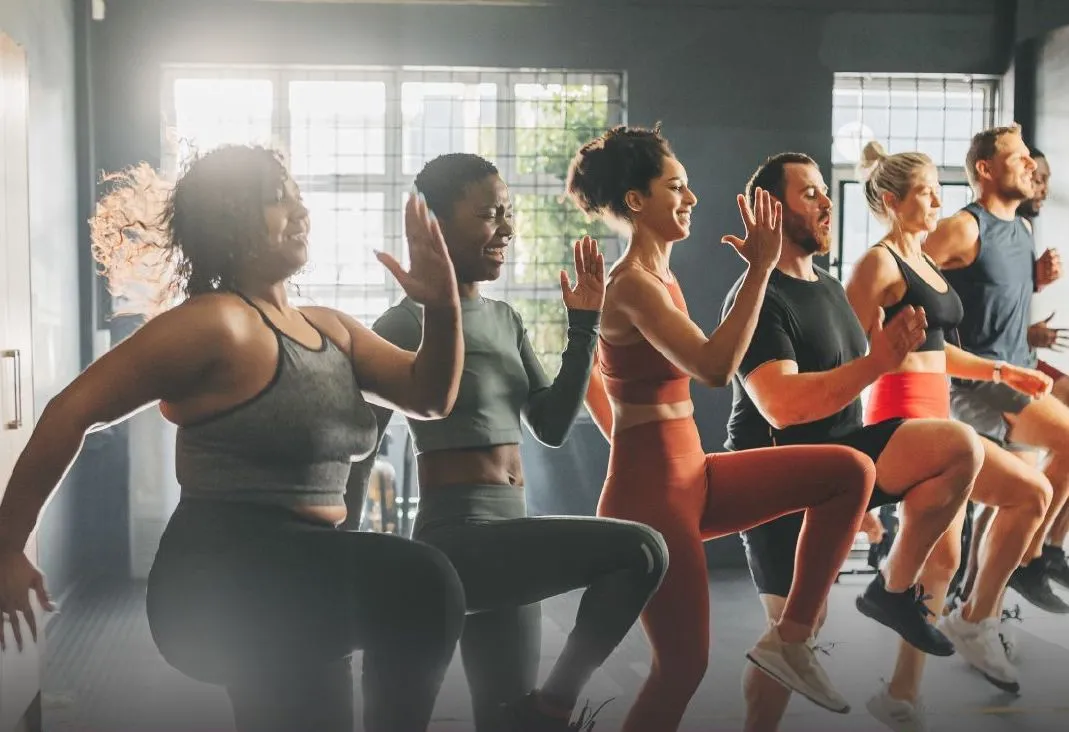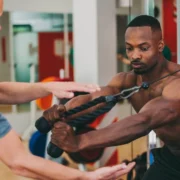ISSA Tackles Racism, Biases With Latest Course: ‘Fostering Inclusivity in Fitness’

ISSA’s senior product manager Vanessa Scott spoke with Athletech News about the first-of-its-kind course
The International Sports Sciences Association (ISSA) has launched a first-of-its-kind course designed to make an impact on fitness professionals and consumers by allowing trainers to create a welcoming and inclusive environment for all.
The latest course offering, “Fostering Inclusivity in Fitness,” raises awareness of inequities, exclusion and disservice that often occur in fitness spaces, says ISSA.
By cultivating a commitment to education and consciousness, the wellness educator says the new course will enable fitness trainers to give clients a chance to focus on their wellness goals while ensuring a safe and welcoming environment.
Topics in the course include Fitness is for Everyone; Implicit Bias – Identifying our Blank Spots; Understanding Racism and its Impact on Health; Addressing Racism in Our Lives and in Fitness; Diversity and Inclusion in Fitness; Social Identities; and Navigating the Work of Diversity and Inclusion.
Course participants will learn from video scenario content, example conversations, video lectures and a terminology reference guide.
ISSA created the program to address concerns of inequality and inequity brought to the forefront in recent years, says Vanessa Scott, a senior product manager at ISSA, who spoke with Athletech News about the new course.
“As an organization, ISSA was moved to be a part of and contribute to positive change,” Scott said. “We wanted to create a program that would bring awareness to fitness professionals and provide them with actionable steps to create an inclusive environment wherever they go. We know that diversity and inclusivity are important, but how do we achieve that? ISSA’s Fostering Inclusivity in Fitness teaches exactly that.”
Inclusion is critical in the fitness and health world, as it promotes wellness, Scott added.
“If one feels like they do not belong in the fitness space, they may not participate and exclude themselves from improving their health and overall wellness,” she said.
“For example, a woman in a larger body may not feel comfortable entering the weight room at her local health club,” Scott continued. “Perhaps she was told that she should exercise to lose weight and not build muscle and strength. ISSA’s Fostering Inclusivity in Fitness teaches fitness professionals how to be aware of their own biases and effectively approach this individual with an open mind and empathy.”

The course will also instruct fitness professionals on how to work with wellness enthusiasts of varying gender identities, racial and cultural backgrounds, physical abilities and more.
“Personal trainers and fitness professionals alike can truly become the guiding light to usher someone into the world of fitness that may have otherwise felt excluded,” Scott said.
While there is much room for education and improvement, there are certain aspects that the fitness industry is already getting right regarding inclusion, according to Scott.
One helpful thing is the shift toward increased representation and featuring a more diverse range of individuals in marketing materials, social media campaigns and advertisements, and the growing movement toward body positivity.
“There is an increase of fitness professionals and influencers that promote body acceptance, self-love and the importance of overall well-being rather than focusing solely on appearance or weight loss,” Scott points out, adding that there are collaborations and partnerships with organizations and individuals that promote inclusivity and diversity.
“ISSA is a great example of this with our partnership with writer Chrissy King,” Scott said. “She wrote the Fostering Inclusivity in Fitness course textbook and was an integral part of the entire course development.”
Scott says one of the most essential steps in doing the work of inclusivity is self-reflection and examination of one’s own biases.
“In the course, we refer to them as our ‘blank spots’ because most people aren’t aware of their biases,” she said. “These unexamined biases can lead to unintended negative consequences such as excluding groups/individuals or making them feel uncomfortable, missed business opportunities and an overall limited perspective on the number of lives that you can improve through fitness.”
There is also an opportunity to be inclusive when it comes to emerging fitness tech, such as by representing inclusivity in the design, marketing and promotion of fit tech with diverse body types, ethnicities, genders and age groups in imagery, videos and other media.
“Fitness tech should strive to be accessible to people of all abilities,” Scott said. “This includes designing devices and applications with features like adjustable font sizes, compatibility with screen readers for visually impaired individuals and consideration for different motor skills and mobility levels.”
Scott also points out the importance of data accuracy and being mindful of biases.
“When developing fitness tech, it’s crucial to ensure that algorithms, data, and analysis are accurate and do not perpetuate biases or discrimination,” she said. “Biased algorithms can result in disparities, such as inaccurately measuring or analyzing the fitness progress of certain demographics.”
Interested fitness and wellness professionals can sign up for the ISSA Fostering Inclusivity in Fitness course here.



